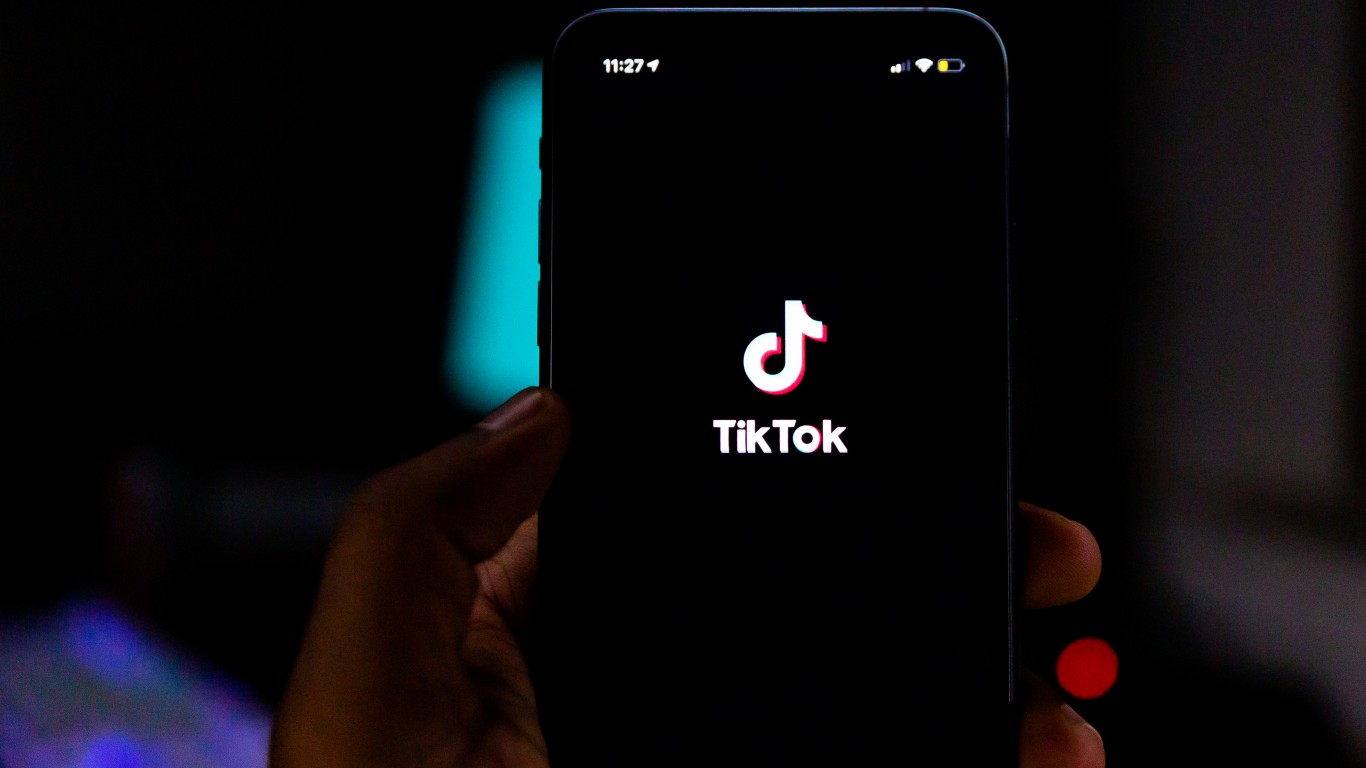
If you have noticed a decline in the quality of customer service in recent years, you are not alone. The American Customer Satisfaction Index, a cross-industry corporate research organization, found that satisfaction among American consumers fell to its lowest level in 20 years in 2022. Experts attribute the rising levels of dissatisfaction to worker shortages and increased use of automation (fueled by a tight labor market), and market shocks triggered by the pandemic and the war in Ukraine.
The quality customer service – or lack of it – has tarnished the reputation of many companies, and undoing the damage, if possible, may take years. But while broader economic conditions have impacted how businesses interact with consumers, incidents that hurt corporate reputations are also often self-inflicted. Poor management, lax safety standards, controversial marketing strategies, and criminal fraud have all hurt the reputations of major companies this year.
Based on some of the biggest and most recent corporate scandals in the U.S., as well as data from the ACSI, 24/7 Wall St. identified America’s most hated companies. We focused on companies that are well known and received high levels of press coverage. Companies are listed in alphabetical order and include some that have gone bankrupt. (Here is a look at the 25 biggest bankruptcies in American history.)
While every company on this list is notable, either for widespread customer dissatisfaction, a major scandal, or both, the severity of these issues vary considerably. In some cases, like the two utility companies on this list, corporate missteps have resulted in death and destruction of property. In others, the products manufactured by these companies have had serious and widespread health consequences in the United States. These include a major opioid manufacturer and an industrial manufacturer that used harmful “forever chemicals” in many of its products.
For other companies, reasons are far less egregious or even non-existent, at least for the majority of Americans. This year, the culture wars dividing the country extended beyond politics and into the corporate world. The issue of LGBTQ+ rights has been particularly fraught for several major U.S. companies. Intentionally or not, companies including Anheuser-Busch, Disney, and Target waded into the culture war debate and upset large segments of the population for taking a side, or appearing to. In each case, doing so resulted in a public backlash and declining revenue. (Here is a look at the 25 brands customers are abandoning.)
Click here to see Americas most hated companies.
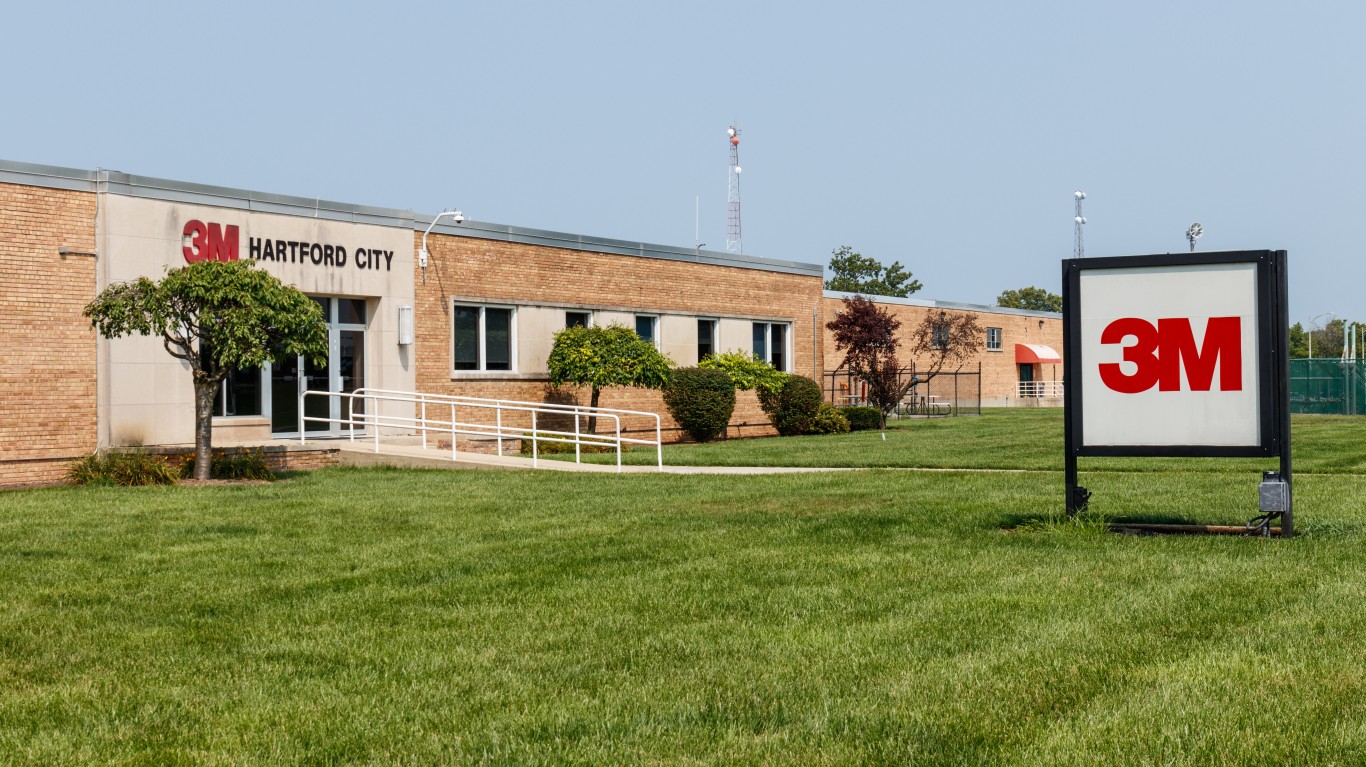
3M
> Headquarters: St. Paul, MN
> Annual revenue: $34.2 billion
3M, a major chemical and manufacturing company, is facing public backlash in the United States due to widespread contamination of public water supplies. This stems from its use of perfluoroalkyl and polyfluoroalkyl substances, often referred to as “forever chemicals”. Although 3M agreed to a $10.3 billion settlement earlier this year to address the issue, it did not admit liability, further fuelling public discontent.
High levels of PFAS have been shown to be potentially carcinogenic and may be linked to a number of health conditions. 3M uses these chemicals in a number of products, including firefighting foam and non-stick coatings, and could be liable for tens of billions more in damages in the near future.
[in-text-ad]
Anheuser-Busch InBev
> Headquarters: Leuven, Belgium
> Annual revenue: $57.8 billion
For the first time in decades, Anheuser-Busch InBev’s Bud Light is no longer the best-selling brand in the United States. A boycott of the brand earlier this year resulted in a 10.5% year-over-year decline in U.S. revenue in the second quarter.
The boycott was part of a broader backlash against the brand for partnering with transgender influencer Dylan Mulvaney in a promotional campaign. In recent years, transgender rights have become a focal point in American culture wars, and critics – mainly from conservative circles – took exception to the values expressed by AB InBev’s partnership with Mulvaney. The company even managed to garner criticism from the left – particularly after a statement from the CEO in the wake of the backlash – for attempting to leverage LGBTQ indentity to drive revenue growth.

Credit Suisse
> Headquarters: Zurich, Switzerland
> Annual revenue: $15.2 billion
Earlier this year, Zurich-based bank Credit Suisse was on the verge of collapse following multiple scandals – including allegations of fraud, money laundering, and corporate spying – as well as heavy losses on loans. To avoid a financial crisis, the Swiss government orchestrated the bank’s takeover by investment bank UBS, a former rival. The buyout comes after 167 years of independence for Credit Suisse.

Disney
> Headquarters: Burbank, CA
> Annual revenue: $82.7 billion
Disney waded into the American political discourse and culture wars when it spoke out against Florida’s so-called “Don’t Say Gay” law that bans discussions of sexual orientation and gender identity in classrooms across the state. In doing so, the company, which is among Florida’s biggest taxpayers, drew the ire of presidential hopeful Gov. Ron DeSantis, who attempted to revoke Disney’s independence in running its theme parks. The controversy put Disney at the center of the ongoing culture wars in the United States and upset segments of its customer base.
Disney’s value as a brand plummeted by 22% in the past year, according to consulting firm Kantar, and the company’s streaming service Disney+ is also among the most widely disliked streaming services on the market, according to the American Customer Satisfaction Index. Since March 2021, Disney’s share price has tumbled by over 56%.
[in-text-ad-2]
Ford Motor Company
> Headquarters: Dearborn, MI
> Annual revenue: $158.1 billion
Ford Motor Company is facing more quality control issues than any other automaker. The Ford brand reported an industry-leading 67 recalls in 2022 and has maintained the top spot in 2023, with 38 recalls so far.
These production and design issues can present major safety hazards and are drawing criticism. These include a fractured driveshaft issue affecting almost a quarter million F-250 and F-350 Super Duty trucks; an engine oil leak that may impact as many as 350,000 Ford Escapes and Broncos; and a problem that can cause nearly 3 million impacted vehicles to shift into an unintended gear and move in an unexpected direction. In 2022 alone, 20 recalled vehicles reportedly caught on fire, and in three cases, nearby structures caught fire as well. Ford sales in the U.S. market have fallen every year since 2016.
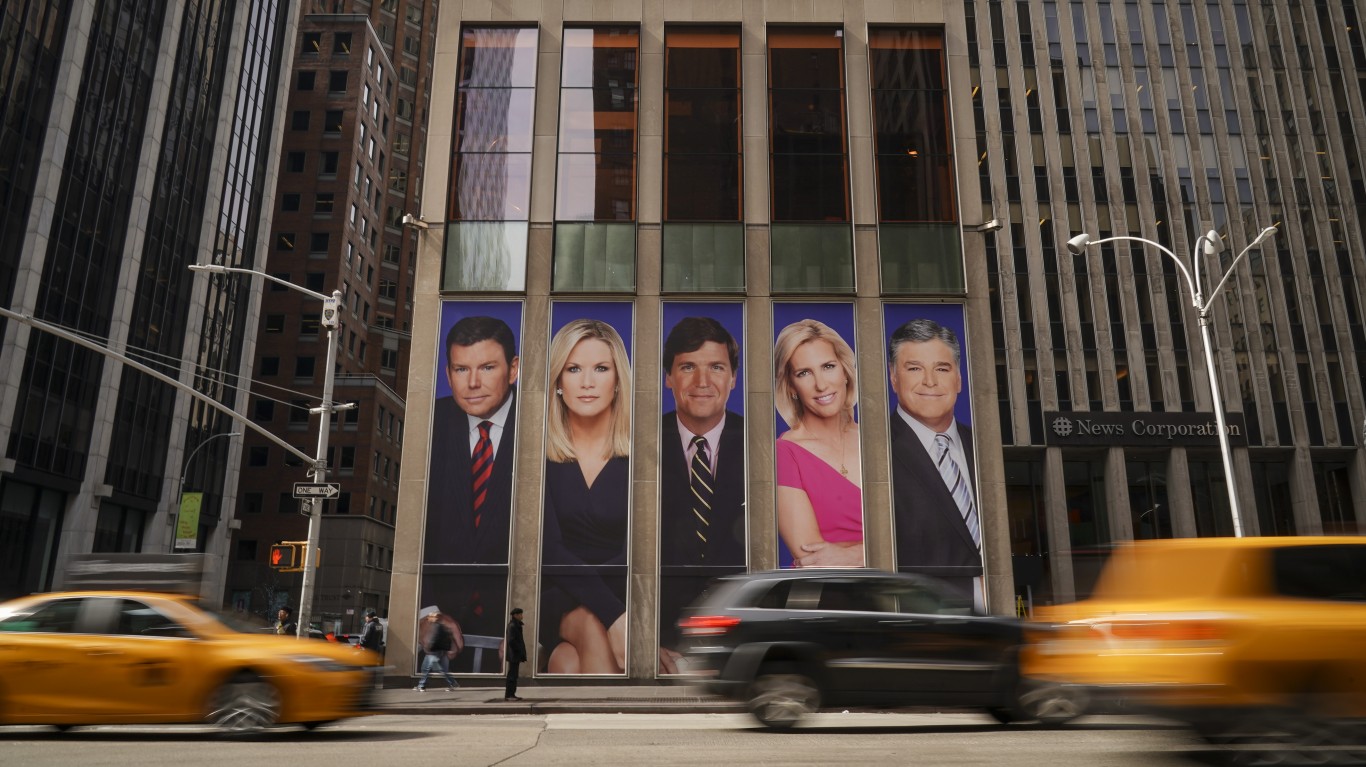
Fox Corporation
> Headquarters: New York, NY
> Annual revenue: $14.9 billion
Fox Corporation has long been the subject of criticism for bias in its news coverage and political reporting, but a recent shakeup at the company has drawn even more public ire than usual. Tucker Carlson, long-time host of Fox News’ highest rated primetime show, left the network earlier this year in what was described as a “mutual agreement.”
Before his departure, a lawsuit between the network and voting equipment company Dominion Voting Systems revealed that Carlson’s personal views diverged sharply from the opinions he offered viewers on-air. Though Carlson had often publicly supported Donald Trump’s claims that the 2020 election was stolen, text messages discovered in the lawsuit revealed statements from the host calling Trump “demonic” and claiming that Trump’s false election claims were “complete bs” and “mind blowingly nuts.” According to the Washington Post, Carlson even went so far as to say “We are very, very close to being able to ignore Trump most nights. I truly can’t wait… I hate him passionately.” After Carlson left the network, viewership during his slot fell from an average 3.3 million per night to 1.5 million.
[in-text-ad]
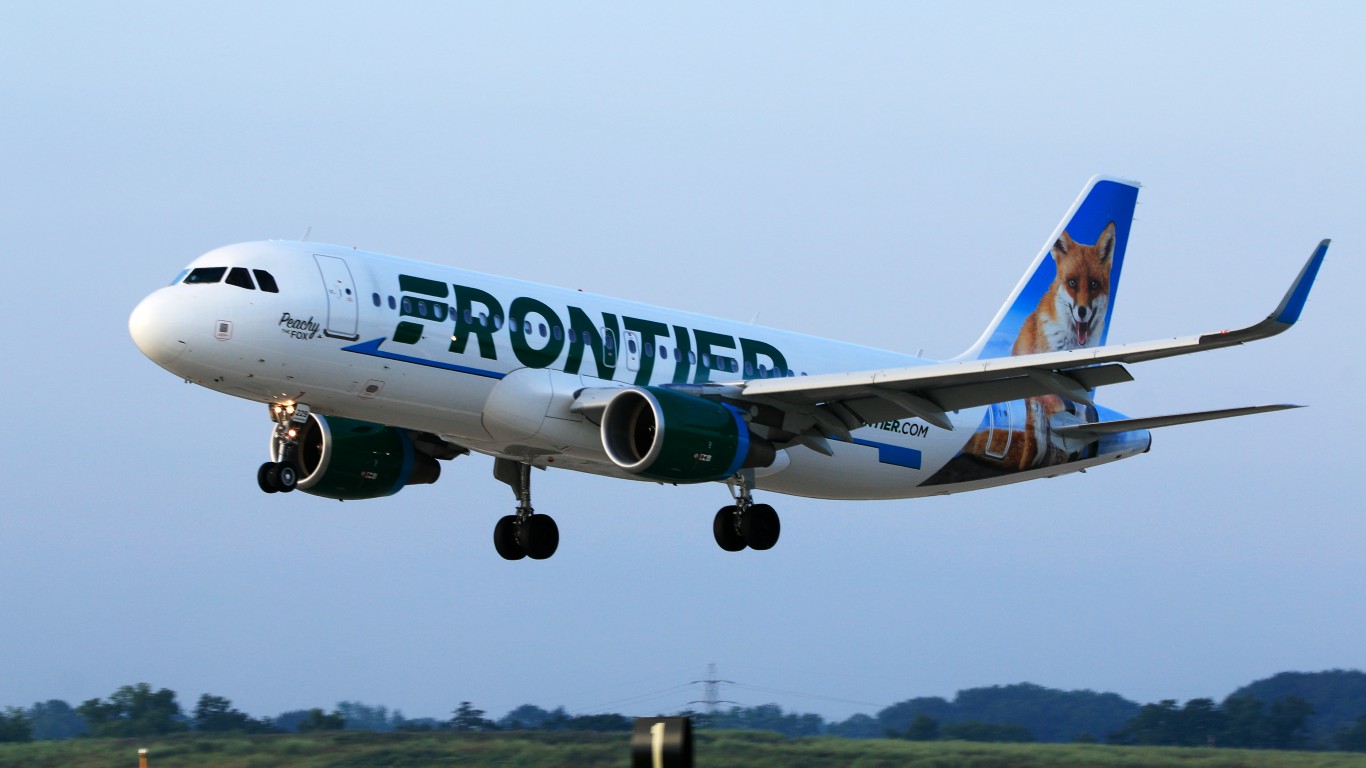
Frontier Airlines
> Headquarters: Denver, CO
> Annual revenue: $3.3 billion
Low-cost air travel company Frontier Airlines has some of the lowest rates of customer satisfaction in the industry. According to the American Customer Satisfaction Index, Frontier has a customer satisfaction score of just 67 out of 100, compared to the industry benchmark score of 76 out of 100. Unfavorable perceptions of the company are warranted. Data from the U.S. Department of Transportation shows that only 56.6% of Frontier flights arrived on time in the busy holiday season of December 2022, an industry low.
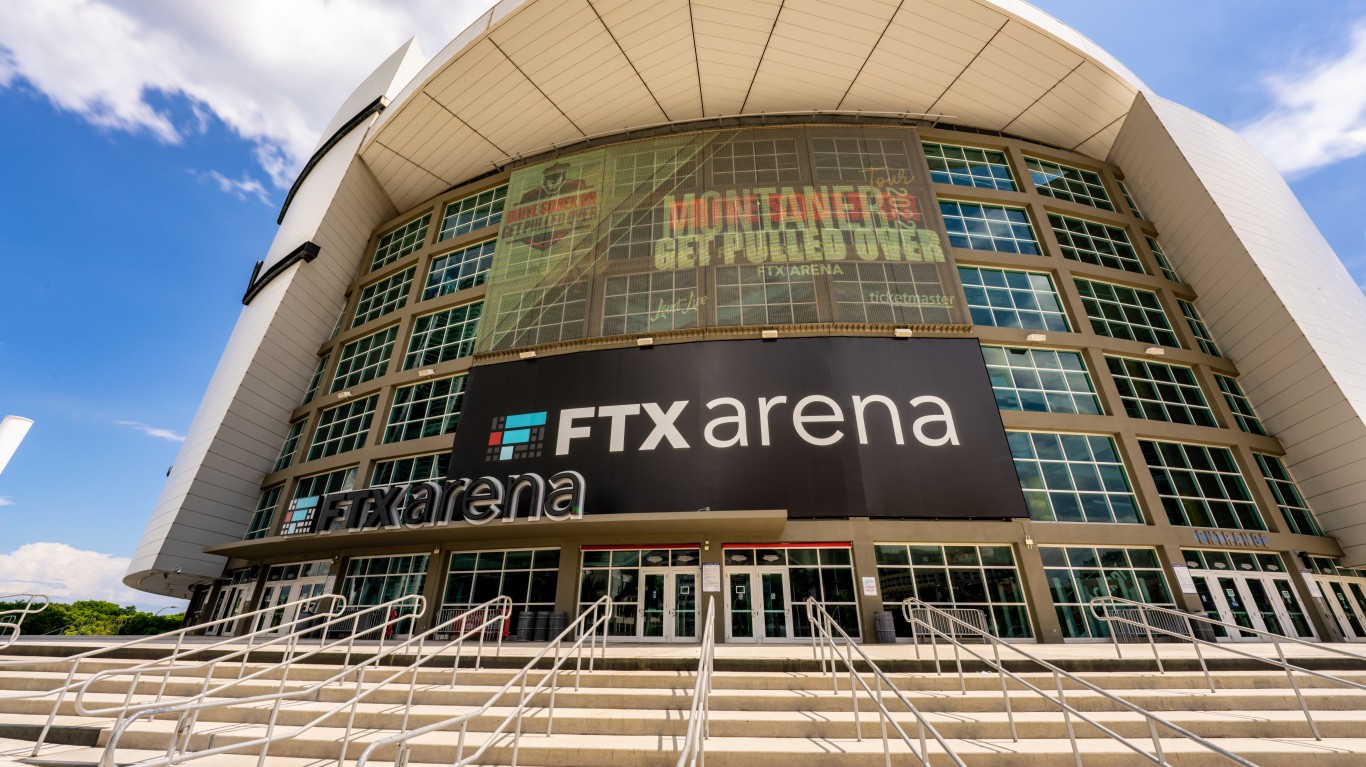
FTX
> Headquarters: Nassau, The Bahamas
> Annual revenue: $1.0 billion
In late 2022, the crypto currency exchange FTX went from one of the largest companies in the industry to one of the biggest fraud cases of all time. Founded in 2019 by Sam Bankman-Fried, who was only 26 at the time, FTX faced a liquidity crunch last year due to falling cryptocurrency value and $2 billion in customer funds that had been diverted to a privately held subsidiary run by a romantic partner of the CEO.
Revelations of the embezzlement led to Bankman-Fried stepping down, the company filing for bankruptcy, and the former CEO’s arrest. Bankman-Fried was released on a record-high $250 million bond and faces multiple charges, including defrauding customers and lenders and conspiracy to violate anti-bribery regulations.
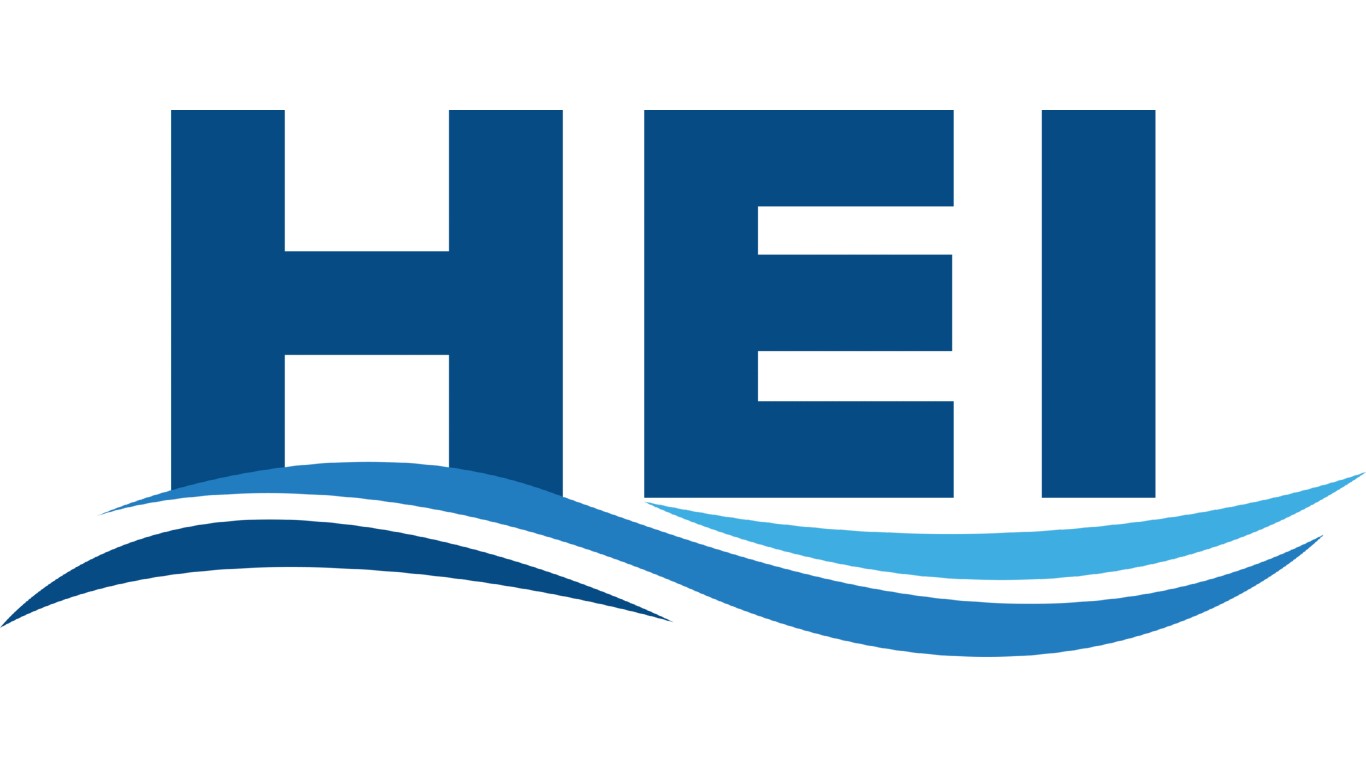
Hawaiian Electric Industries
> Headquarters: Honolulu, HI
> Annual revenue: $3.7 billion
The Hawiian island of Maui was recently hit with the deadliest wildfire in modern American history. So far, at least 114 people are confirmed to have died in the blaze, though 1,000 more are estimated to be missing. While a single cause of the fire has yet to be determined, many are pointing fingers at Hawaiian Electric Industries, Hawaii’s primary power provider.
The company is facing multiple lawsuits alleging that it did not de-energize power lines despite high wind warnings, and that sparks from downed power lines may have had a role in the disaster. Looming legal troubles may result in the company declaring bankruptcy.
[in-text-ad-2]
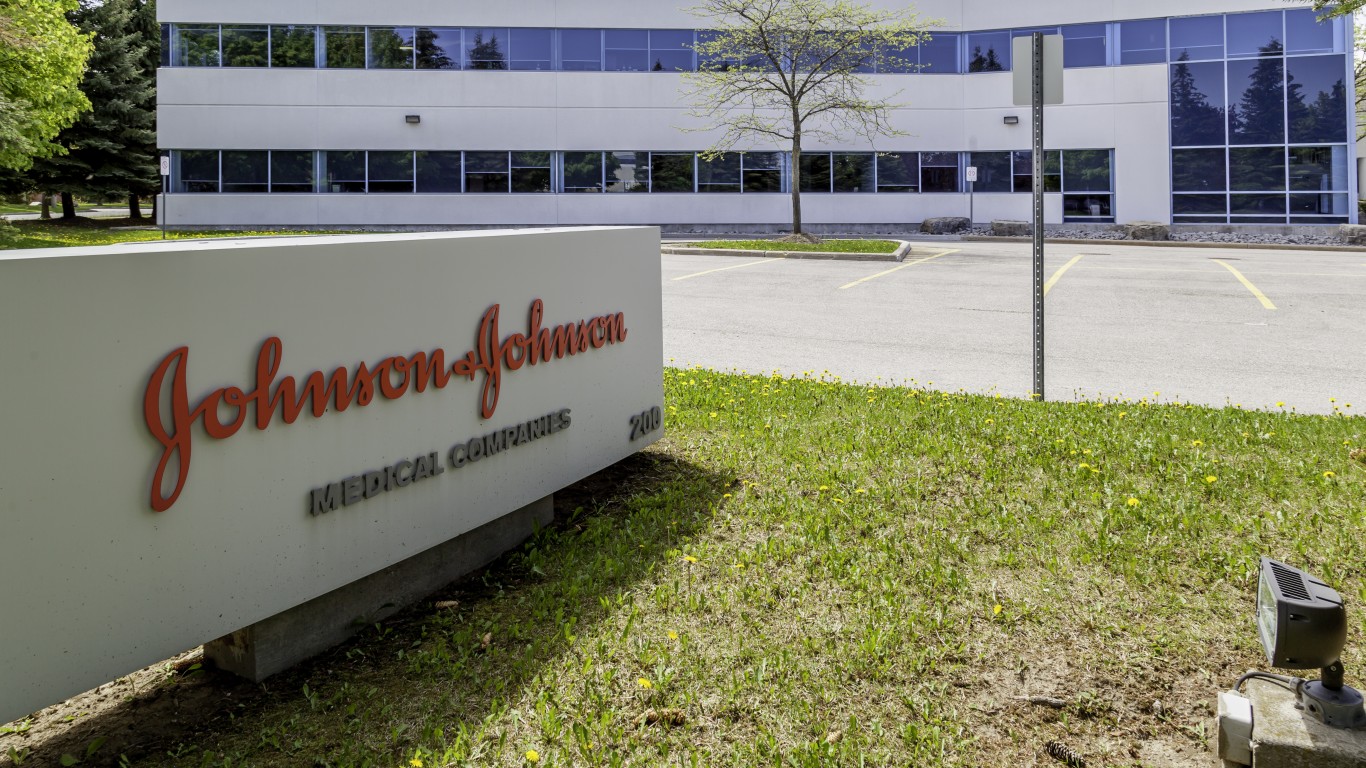
Johnson & Johnson
> Headquarters: New Brunswick, NJ
> Annual revenue: $94.9 billion
Multiple companies are facing billions of dollars in damages for their role in the ongoing opioid epidemic, but few have the household name recognition of Johnson & Johnson. The medical device and pharmaceutical company is behind many common brands, including Band-Aid, Listerine, Neutrogena, and Tylenol. However, the company also produced and profited from generic opioid drugs.
Though J&J announced plans to leave the opioid business in 2020, it is one of the largest companies contributing to a $26 billion settlement as a result of over 3,000 lawsuits from different states, counties, and local governments. J&J will pay $5 billion over a nine year period that began in 2022.

Meta Platforms
> Headquarters: Menlo Park, CA
> Annual revenue: $116.6 billion
Meta, the company behind social media platforms Instagram and Facebook, has drawn its share of criticism in recent years – and 2023 has been no different. After reporting $23.2 billion in profits in 2022 – the same year CEO Mark Zuckerberg renamed employees “metamates” – Meta laid off 10,600 of its workers in the first half of 2023. The most recent layoffs were in addition to 11,000 who were let go in November 2022 and part of a cost-cutting plan in what Zuckerberg has called the company’s “year of efficiency.”
Earlier this year, the company was also fined $1.3 billion for violating EU privacy laws. This came on top of a $725 million class-action lawsuit settlement in December 2022 for improperly sharing customer information with Cambridge Analytica, a data analytics firm used by the Trump campaign in a 2016 bid for the White House.
[in-text-ad]

Netflix
> Headquarters: Los Gatos, CA
> Annual revenue: $31.6 billion
The most popular streaming service in the world, Netflix has over 232 million subscribers. However, the company has faced something of a backlash in recent months. In the beginning of 2022, the company announced a price hike for its standard plan in the U.S. and Canada. It may be no coincidence that the service reported a net loss in subscribers for the first time in a decade that same quarter.
Later in 2022, Netflix announced plans to begin cracking down on password sharing. Though the company once turned a blind eye to account sharing, now, users who want to share passwords with someone outside their own household must pay an additional fee.
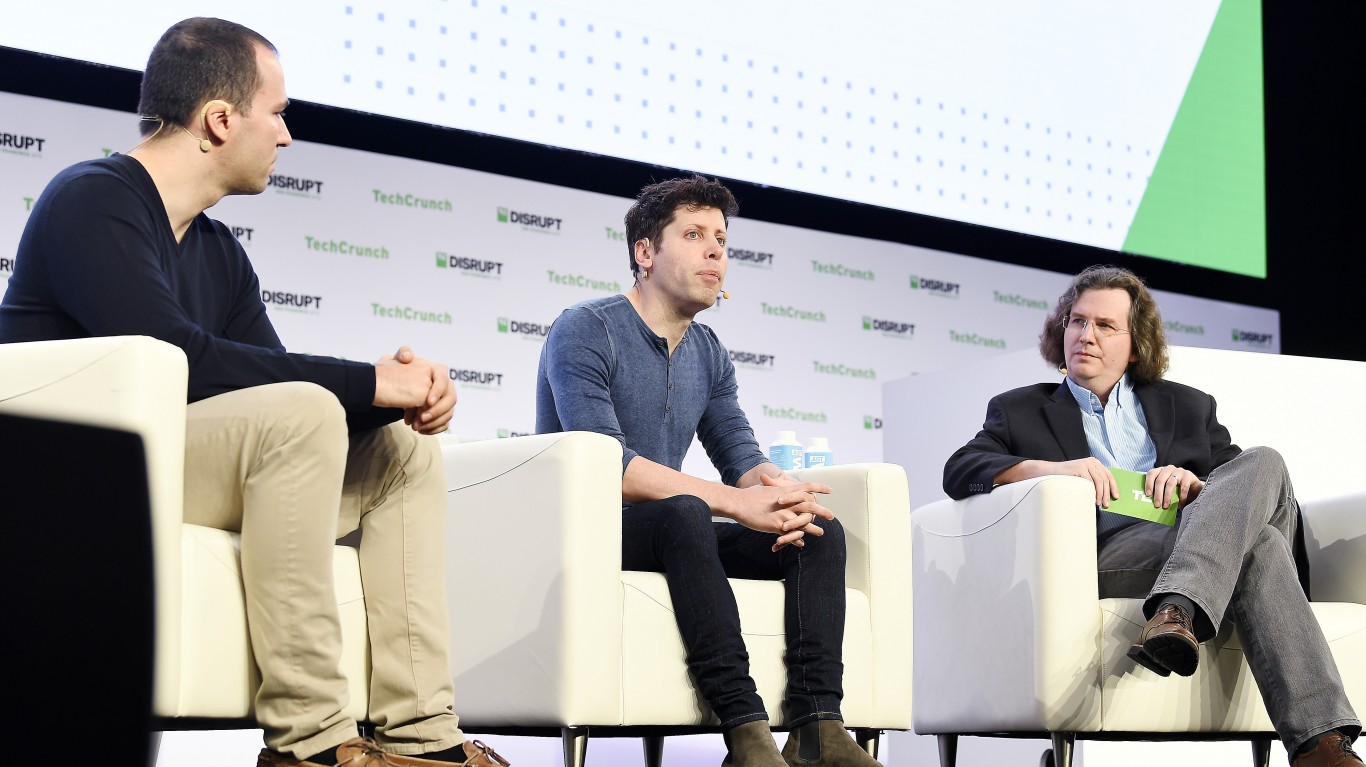
OpenAI
> Headquarters: San Francisco, CA
> Annual revenue: $200 million (est.)
Artificial intelligence is a rapidly evolving technology with the potential to displace millions of American workers. While AI technology is being developed and rolled out by a wide range of tech companies, San Francisco-based OpenAI’s AI product, ChatGPT, has been the poster child for the technology’s impact since its launch in late 2022.
While AI has potential for many positive impacts, it has also been widely criticized for its capacity for harm, including spreading false information, privacy concerns, deepfakes, and becoming uncontrollable. Already, AI has displaced nearly 4,000 U.S. jobs in May 2023 alone, according to Challenger, Gray & Christmas Inc., a global outplacement and business and executive coaching firm. And a report from investment bank Goldman Sachs says AI could result in a reduction of 300 million full-time jobs globally.
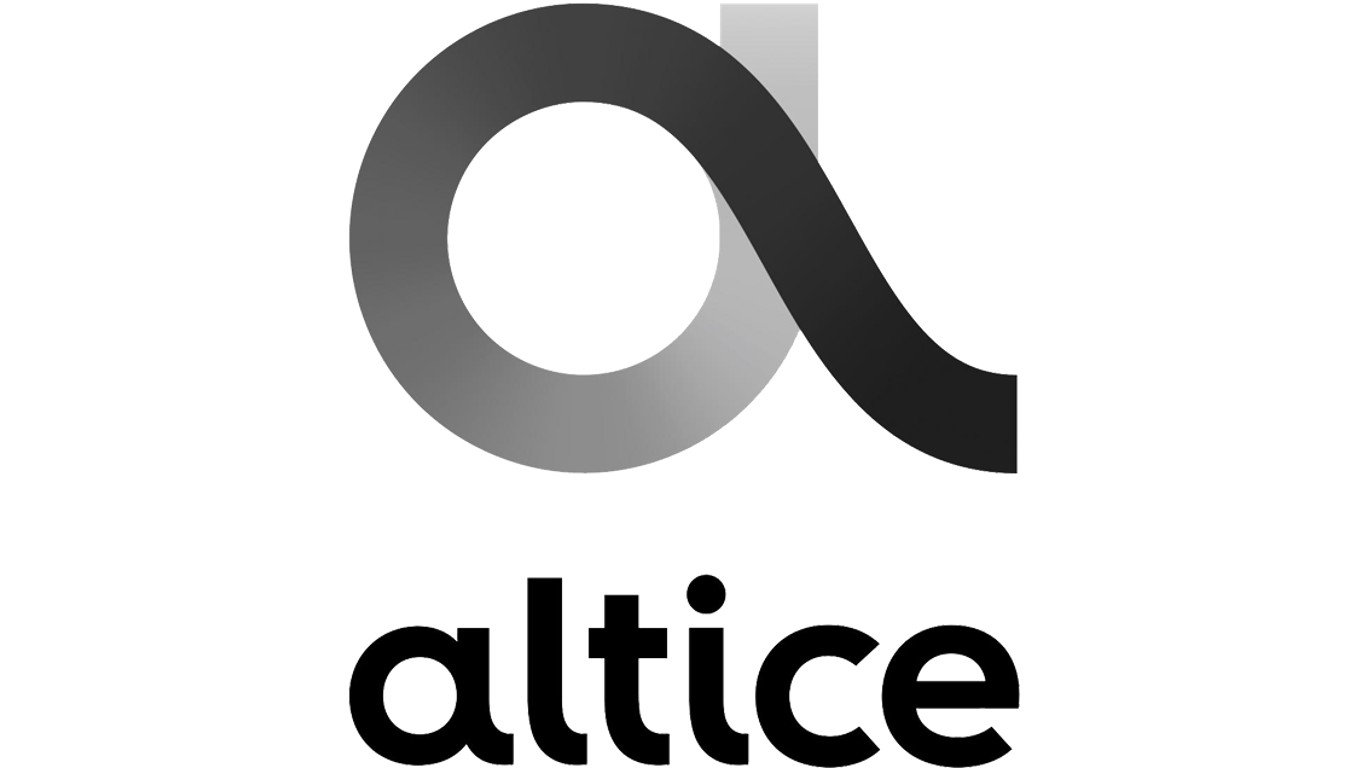
Optimum TV (Altice)
> Headquarters: Long Island City, NY
> Annual revenue: $9.6 billion
No industry or sector has a lower level of customer satisfaction, according to the American Customer Satisfaction Index, than subscription TV service. The industry gets low marks for customer service, the number of available premium channels, and ease of understanding billing structures. Within this much maligned industry, Optimum is the lowest-rated company, with a customer satisfaction index score of just 60 out of 100, well below the industry benchmark of 69 out of 100.
The company also has an average customer review score of just 1,05 out of 5 with the Better Business Bureau and a BBB rating and accreditation grade of “F.” Customers complain about equipment malfunctions, technicians who do not show for scheduled appointments, and receiving bills after discontinuation of service.
[in-text-ad-2]
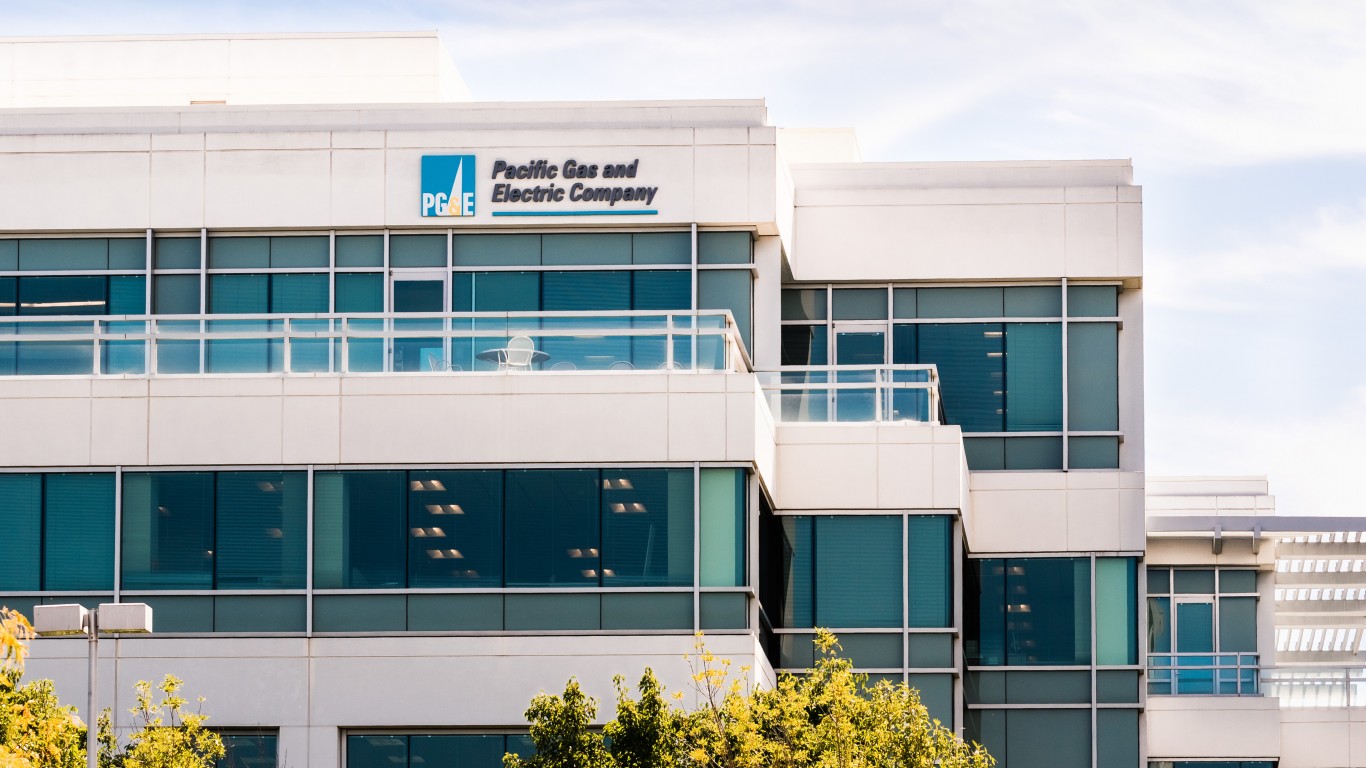
PG&E
> Headquarters: Oakland, CA
> Annual revenue: $21.7 billion
Pacific Gas & Electric, the largest utility company in the United States, has faced widespread criticism and legal action due to wildfires ignited by its outdated power lines in Northern California. The company recently agreed to pay over $55 million to avoid criminal prosecution for the 2019 Kincade Fire and 2020 Dixie Fire in the state, and it faces continued scrutiny and criminal charges for its role in a 2020 Shasta County wildfire that resulted in four fatalities.
Between 2017 and early 2022, PG&E was found accountable for over 30 wildfires, which, combined, destroyed more than 23,000 residential and commercial structures and resulted in over 100 fatalities. The company is in its second year of a five year oversight plan to avert future disasters. PG&E is also the lowest rated energy and utilities company for customer satisfaction, with a score of 63 out of 100 from the American Customer Satisfaction Index.

PGA Tour
> Headquarters: Ponte Vedra Beach, FL
> Annual revenue: $1.6 billion
The PGA Tour is a Florida-based nonprofit group that organizes professional golf tournaments across North America. The group was widely criticized earlier this year for merging with former rival and Saudi-backed organization, LIV Golf. The deal, which will create a new golf entity, resulted in a public outcry over perceptions that the PGA Tour was prioritizing financial benefit over human rights – due in part to Saudi nationals role in the terror attacks of Sept. 11, 2001, recent killings of migrants and asylum seekers, and the murder of the journalist Jamal Khashoggi who was openly critical of the Saudi regime.
In addition to allegations that Saudi Arabia is using sports to pave over its record of government abuses, the deal was also denounced by professional golfers who felt blindsided due to a lack of transparency.
[in-text-ad]

Silicon Valley Bank
> Headquarters: Santa Clara, CA
> Annual revenue: $7.4 billion
In March 2023, the Santa Clara, California-based Silicon Valley Bank, reported to investors that it needed to raise $2.25 billion to improve its balance sheet, as the bank had much of its assets tied up in treasury bonds, which lost value during the series of interest rate hikes by the Federal Reserve Bank. The announcement triggered a bank run, and in the next two days, panic-stricken account holders withdrew a combined $42 billion from the institution. Ultimately, regulators shuttered the bank and seized its assets, resulting in the second biggest bank collapse in U.S. history.
SVB’s failure had a significant impact on California’s tech industry, as many startups in the area relied on the bank for financial services. The bank’s collapse also had global implications, impacting international tech corporations that used SVB, and undermined confidence in American financial institutions.

Snapchat
> Headquarters: Santa Monica, CA
> Annual revenue: $4.6 billion
Social media platform Snapchat faced multiple obstacles in 2022. Legal troubles arose in the form of a class-action lawsuit over allegations that the company violated the Illinois Biometric Information Privacy Act, resulting in a $35 million settlement.
Additionally, the platform faced criticism for being used for sexual exploitation and drug dealing among teens – over 90% of the app’s 100 million daily users in North America are between the ages of 13 and 24. The company’s struggles were reflected in financial setbacks, including a 20% staff reduction, badly missing its third quarter earnings target, and a plunge in its stock price.
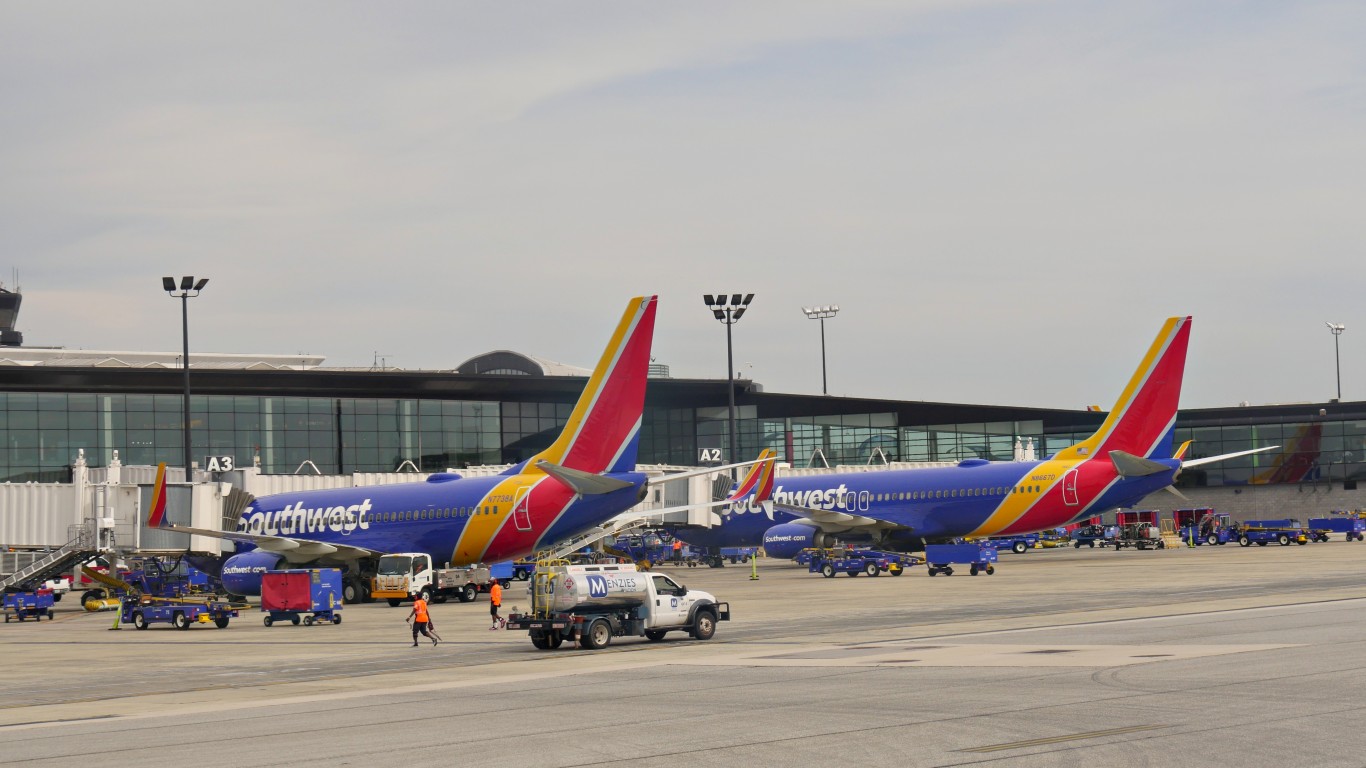
Southwest Airlines
> Headquarters: Dallas, TX
> Annual revenue: $23.8 billion
Southwest Airlines faced significant backlash in the United States after canceling over 16,700 flights during the busy holiday travel season, stranding thousands of travelers. The issues were largely attributed to outdated software systems and potentially unrealistic flight schedules.
The U.S. Department of Transportation launched an investigation into the matter, suggesting the airline’s actions could be considered “unfair and deceptive.” Additionally, the company’s poor communication during the crisis further aggravated both passengers and employees. Southwest also reported hundreds of millions of dollars in losses in the fourth quarter of 2022 and the first quarter of 2023.
[in-text-ad-2]
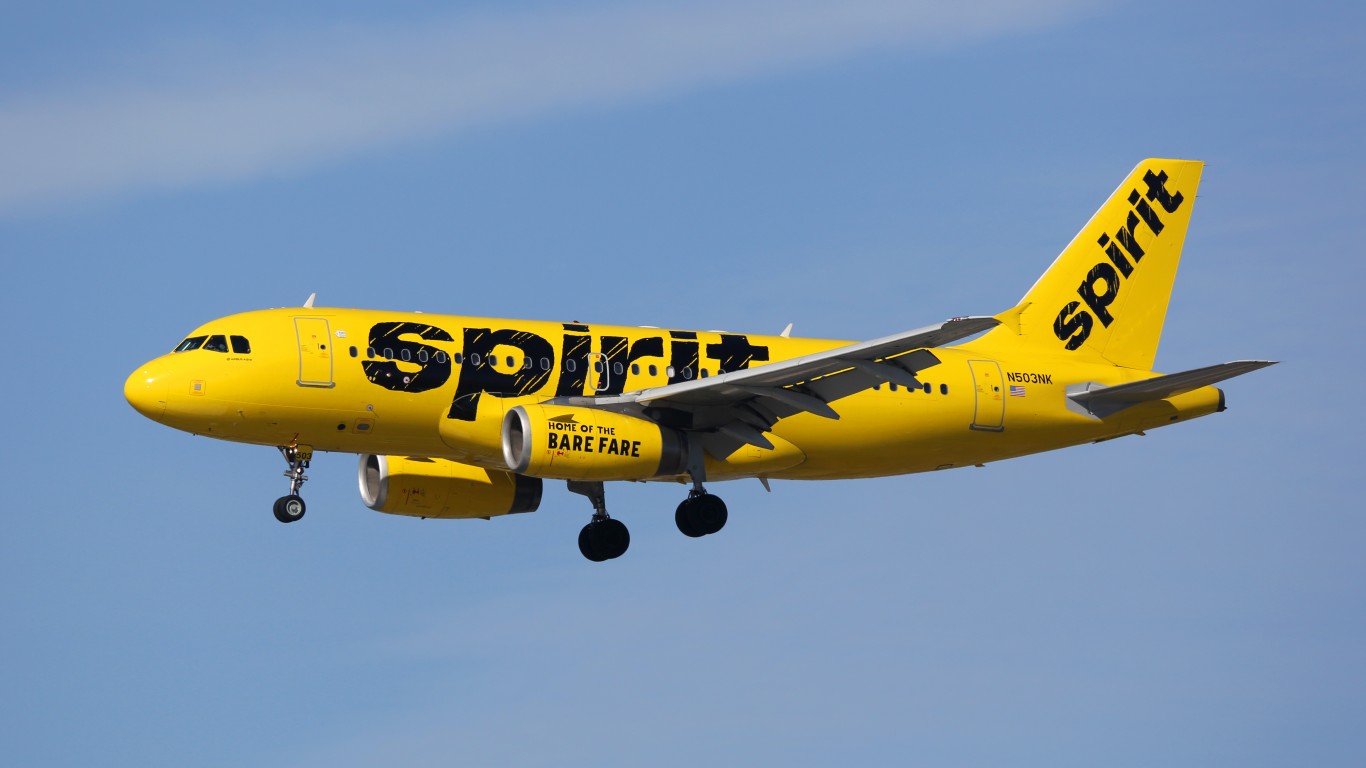
Spirit Airlines
> Headquarters: Miramar, FL
> Annual revenue: $5.1 billion
Many airline companies are not viewed especially favorably by consumers – but none are as maligned as the Florida-based, low-cost air travel company Spirit. According to the American Customer Satisfaction Index, Spirit has a customer satisfaction score of just 64 out of 100, the lowest of all airlines surveyed and well below the industry average score of 76 out of 100. Common customer complaints about the airline include uncomfortable seats, poor cabin service, and fees for basic amenities.
Unfavorable perceptions of the company are warranted. Data from the U.S. Department of Transportation shows that only 56.6% of Frontier flights arrived on time in 2022, an industry low.
Target
> Headquarters: Minneapolis, MN
> Annual revenue: $109.1 billion
Minnesota-based retail giant Target is yet another company on this list that drew criticism from large segments of the population this year for taking a position on social issues. Fueled in part by far-right social media accounts and misinformation, the company faced backlash over its Pride Month displays and merchandise in June 2023.
To protect workers’ safety amid the anti-LGBTQ+ backlash, Target removed some items from its shelves. Right wing outrage over the values the company promoted contributed to Target’s first quarterly sales decline in six years.
[in-text-ad]
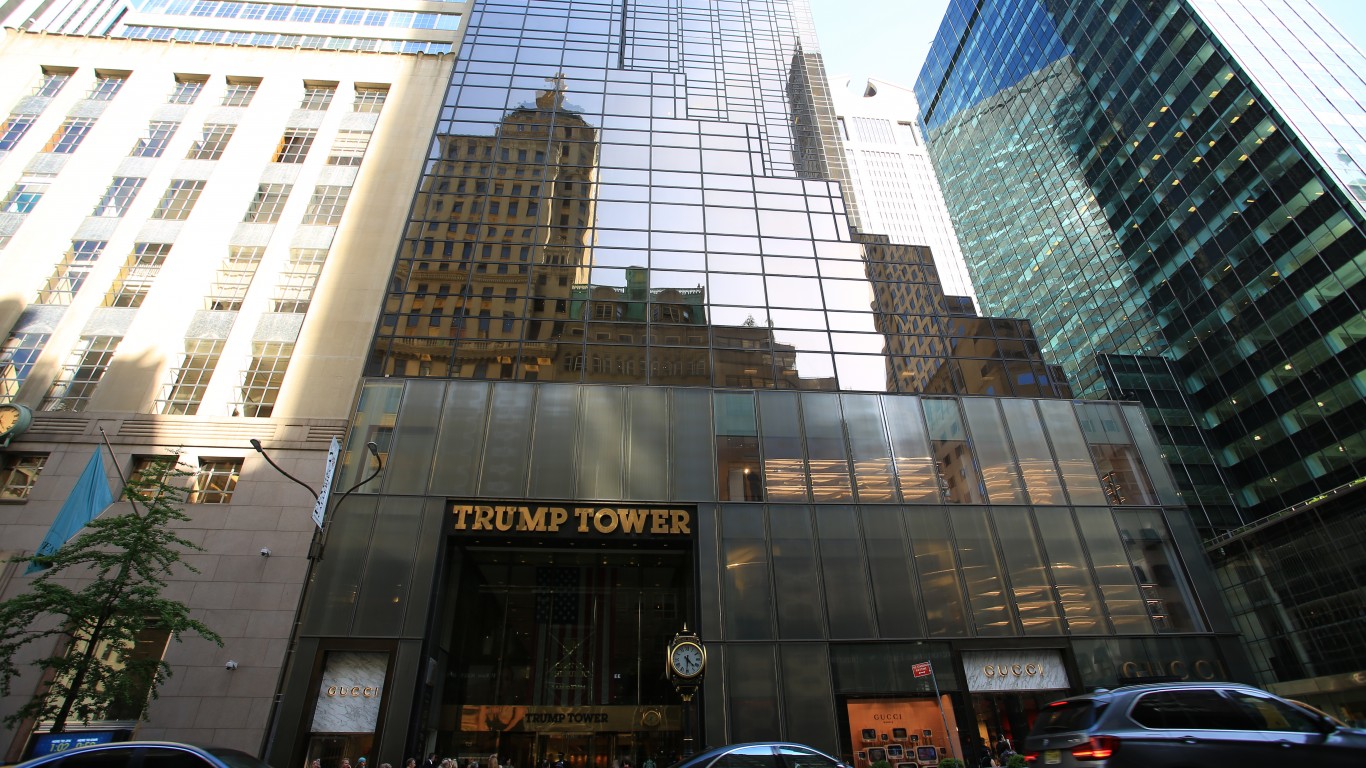
Trump Organization
> Headquarters: New York, NY
> Annual revenue: N/A
One of the least popular presidents in modern U.S. history, and the most controversial, Donald Trump’s company the Trump Organization was already widely disliked by many Americans. But even those without an opinion informed by politics now have reason to dislike the company.
The Trump Organization is a group of over 500 businesses and entities, and in early 2023, two of those companies were found guilty of tax fraud that went back decades and were ordered to pay $1.61 million in fines and penalties. The conviction also resulted in a five-month jail sentence for Allen Weisselberg, a chief financial officer in the Trump Organization.
TikTok
> Headquarters: Los Angeles and Singapore
> Annual revenue: $9.4 billion
TikTok, a popular social media platform owned by Chinese tech giant ByteDance, has faced significant backlash in America due to concerns over national security and data privacy. Critics, including U.S. government officials, worry that the Chinese government could compel ByteDance or TikTok to hand over user data or manipulate content on the platform. Additionally, TikTok’s recent congressional hearing highlighted issues such as child safety, platform addictiveness, and potential mental health repercussions for users, further stoking public debate.
Concerns over Chinese espionage efforts have led to the app being banned from devices issued to employees of the federal government. Over half of all states have issued similar bans for government workers.
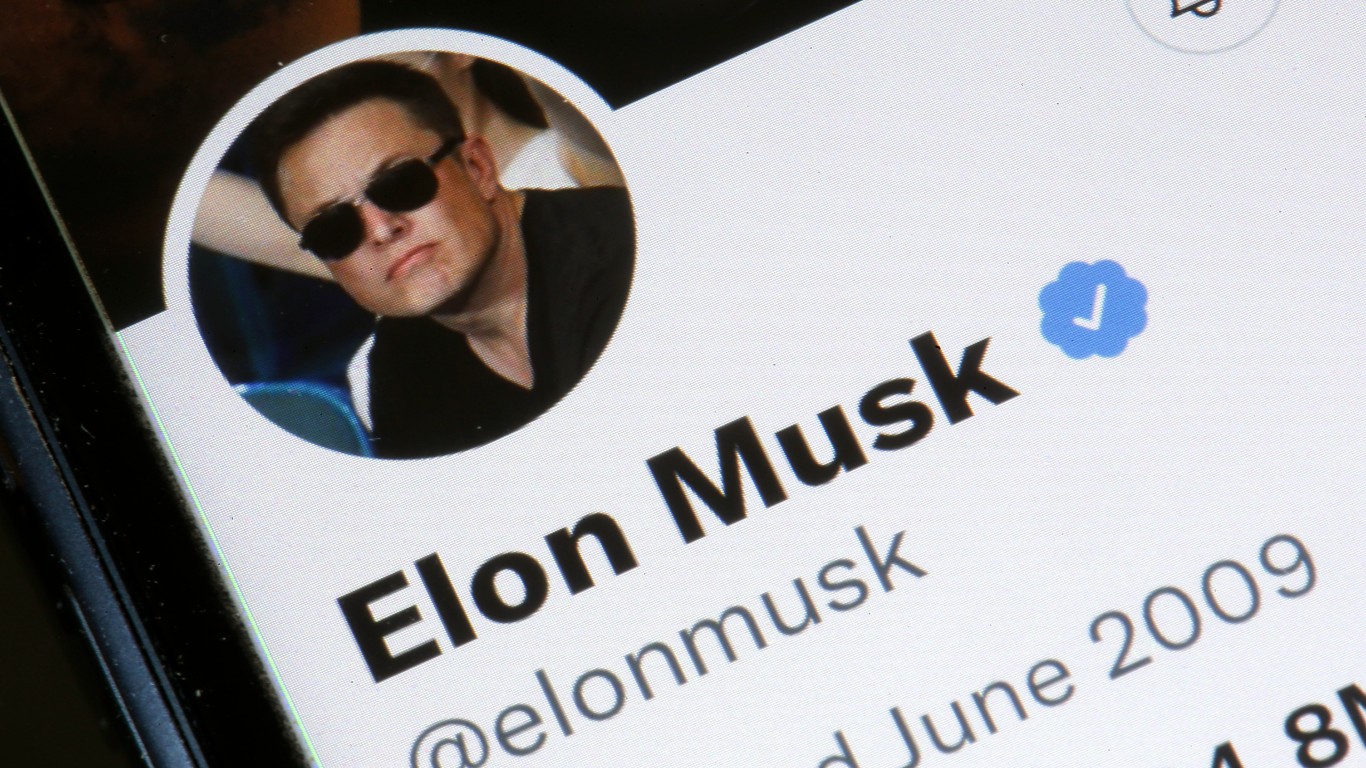
X (formerly Twitter)
> Headquarters: San Francisco, CA
> Annual revenue: $4.4 billion
Social media giant Twitter, now known as X, is no stranger to controversy. Since Elon Musk bought Twitter nearly a year ago, however, the company’s trajectory has been especially tumultuous. Upon taking the reins, Musk removed bans on multiple accounts that had been restricted for hate speech, including neo-Nazis, and never established a content moderation council, as he had indicated he would do. And despite professing to allow the platform to be a haven for free speech, he banned an account that monitored the movements of his personal private jet.
Even more disruptive than the slew of contradictions was the changes he made to company policy around “blue checks.” These were previously used to signify the verified account of a public figure, but Musk began charging $8 a month to anyone who wanted a blue check, leading to a number of cases in which individuals used the new system to impersonate major brands and make false claims. After less than a year at the helm, Musk announced a new CEO in May 2023.
Cash Back Credit Cards Have Never Been This Good
Credit card companies are at war, handing out free rewards and benefits to win the best customers. A good cash back card can be worth thousands of dollars a year in free money, not to mention other perks like travel, insurance, and access to fancy lounges. See our top picks for the best credit cards today. You won’t want to miss some of these offers.
Flywheel Publishing has partnered with CardRatings for our coverage of credit card products. Flywheel Publishing and CardRatings may receive a commission from card issuers.
Thank you for reading! Have some feedback for us?
Contact the 24/7 Wall St. editorial team.
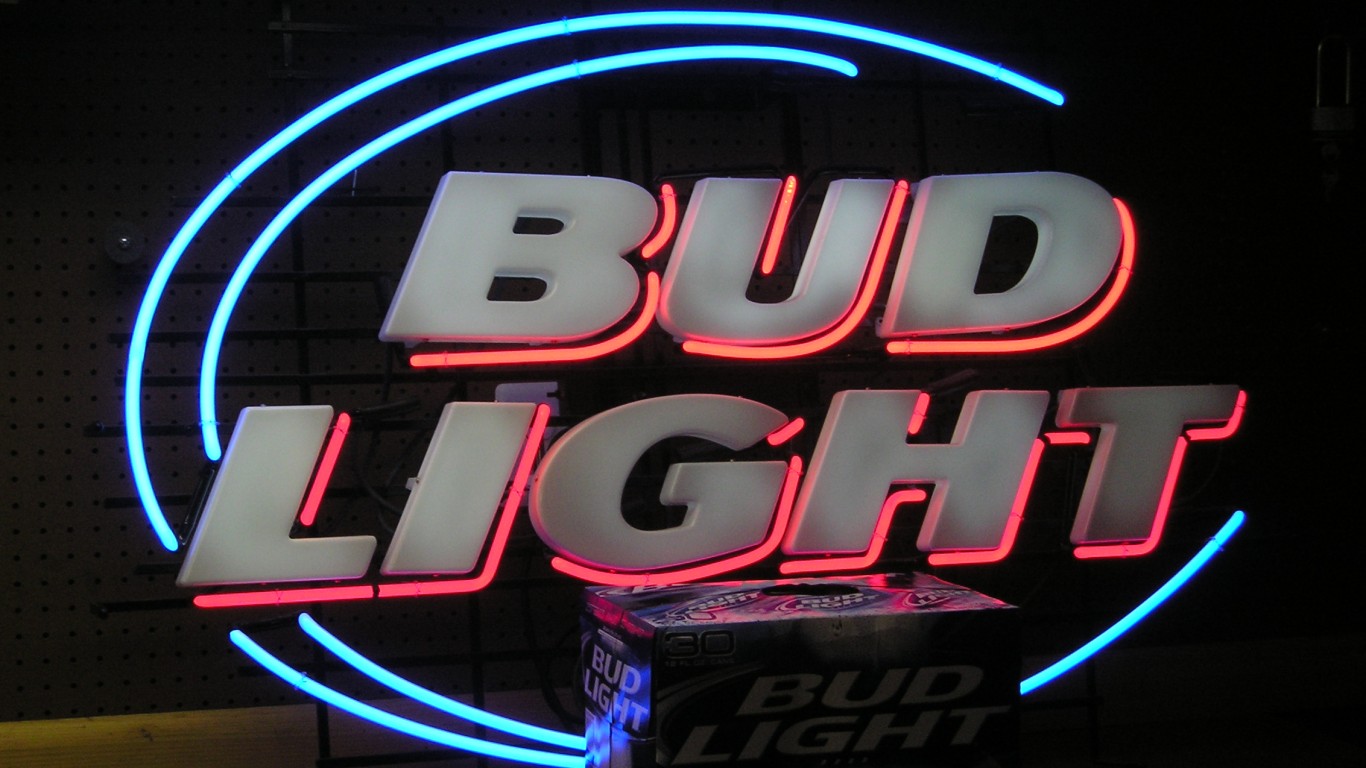
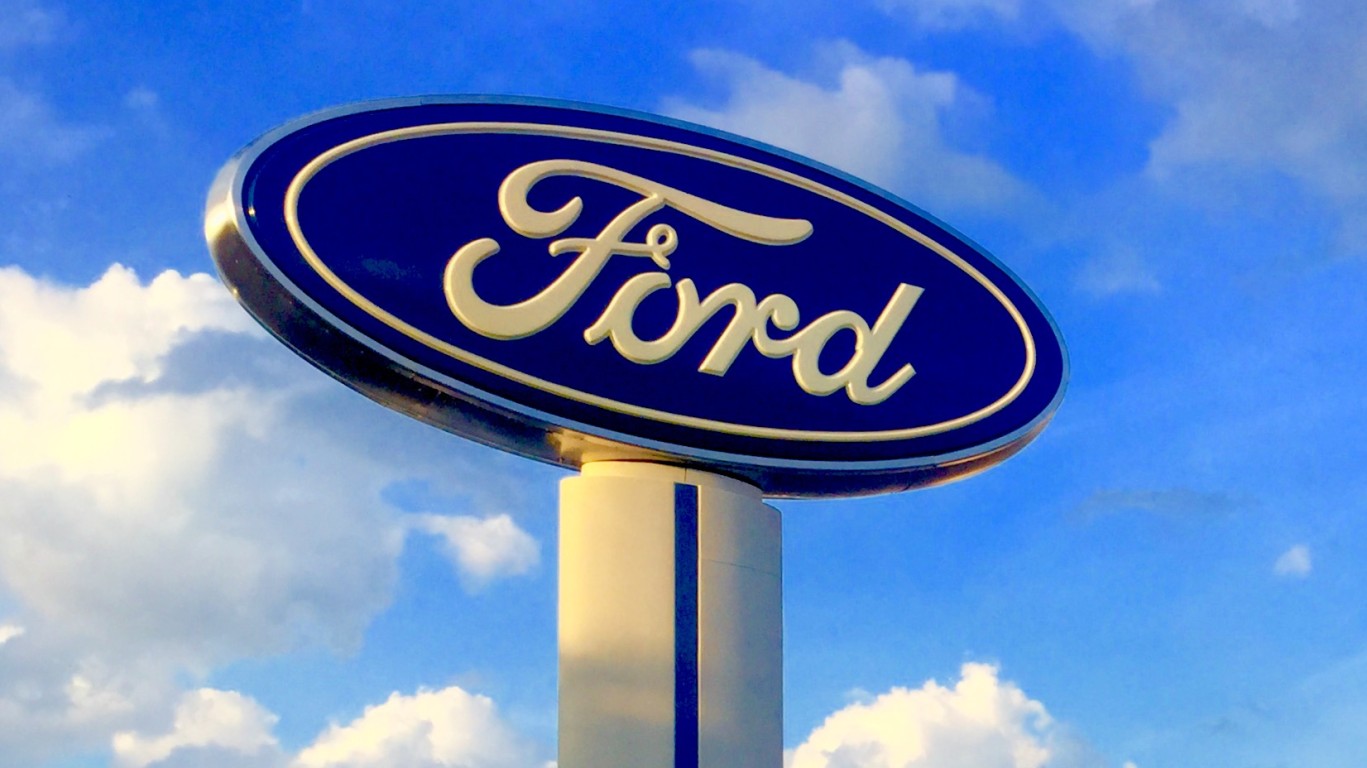
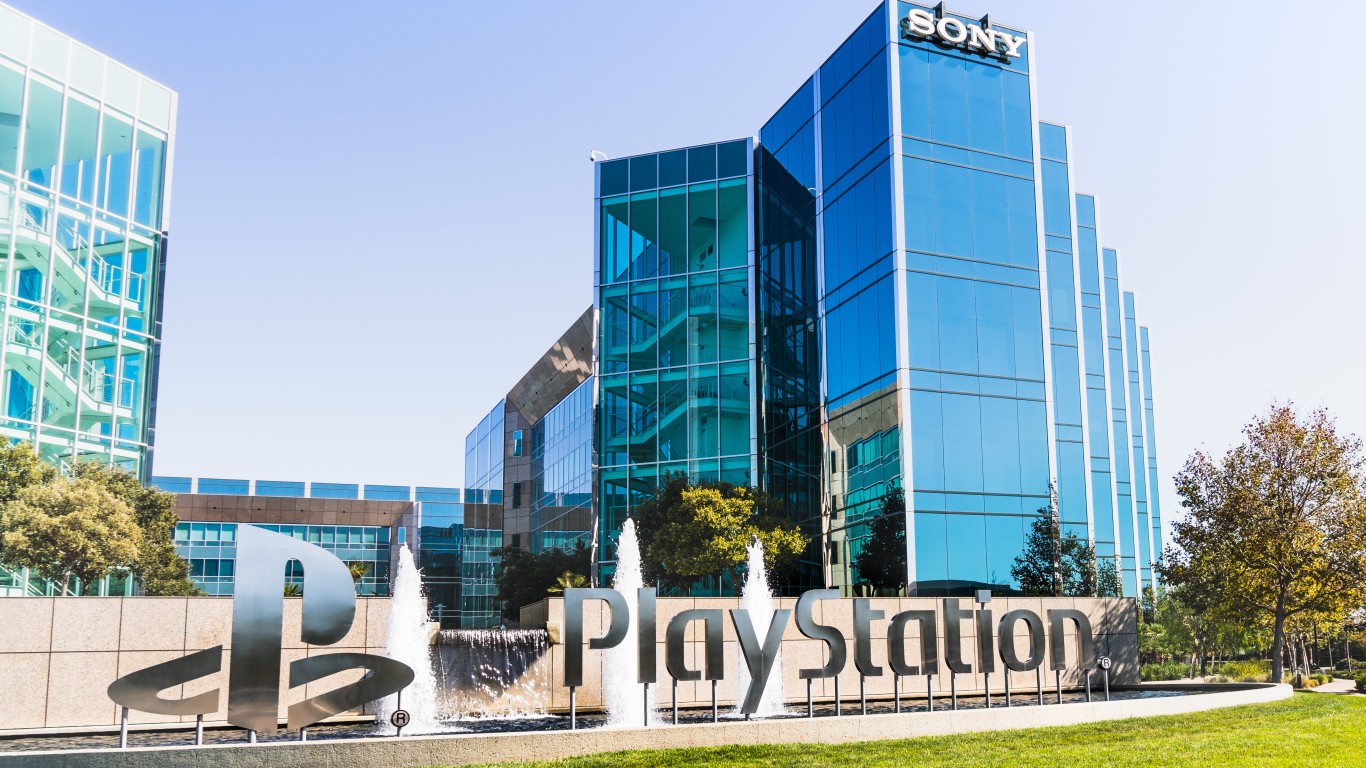 24/7 Wall St.
24/7 Wall St. 24/7 Wall St.
24/7 Wall St.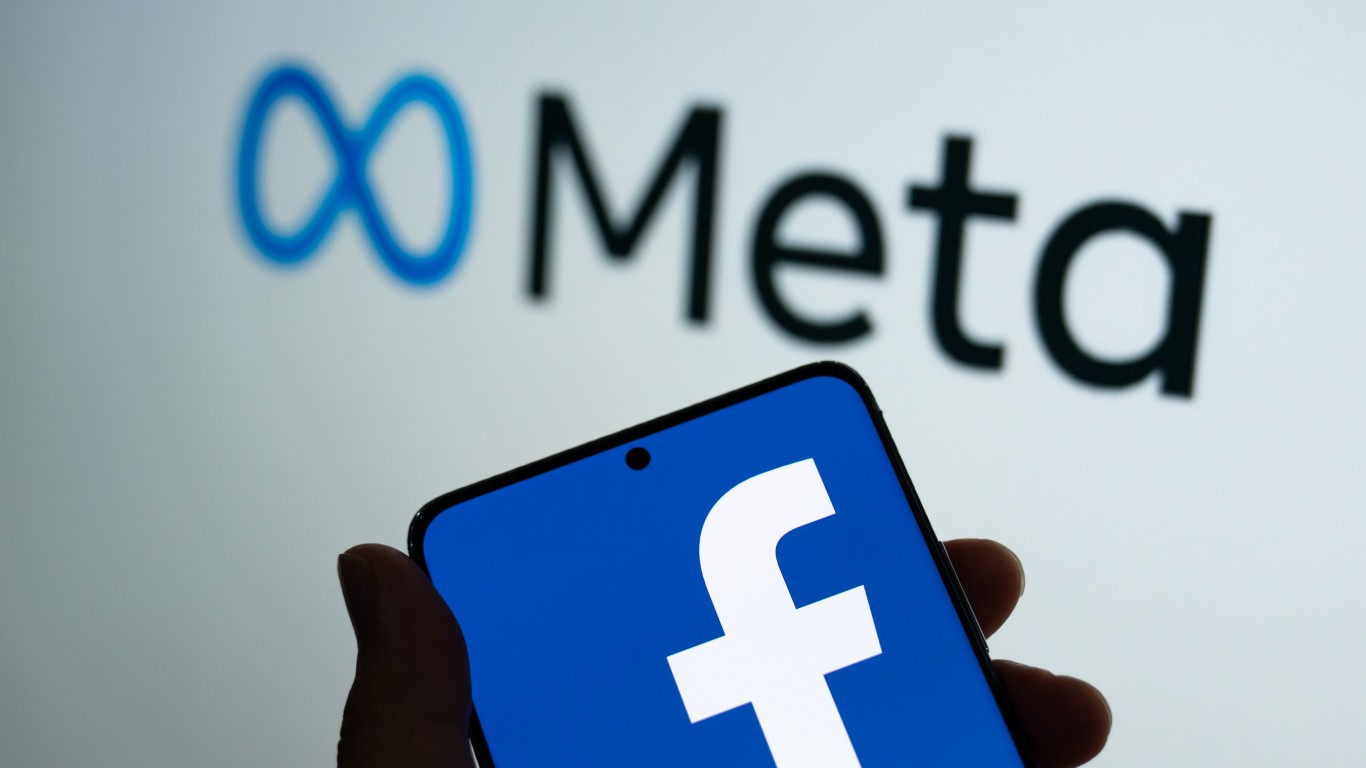 24/7 Wall St.
24/7 Wall St.
 24/7 Wall St.
24/7 Wall St.


